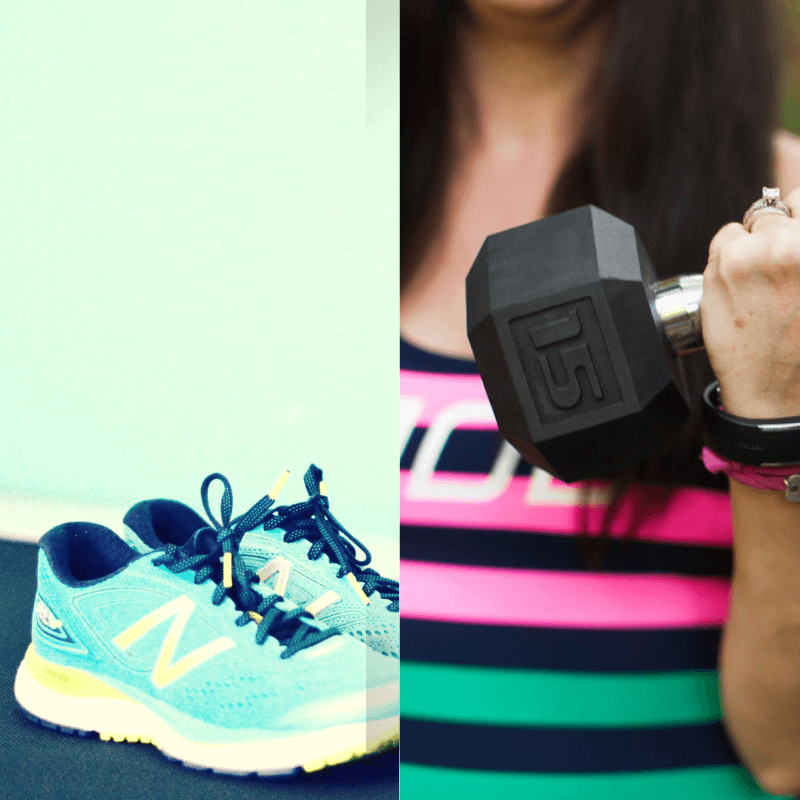Welcome to the first edition of flashback Friday when I’ll share a post deep from the archives that you may have missed the first time around.
It occurred to me today that I’ve been writing this blog for four years! Time flies when you’re having fun. Four years of blogs is a lot of content, so if you landed here from Pinterest or Google, or have recently started following along, there are probably a lot of blogs to catch up on!
Flashback Friday will allow me to update old posts, plus I’ll add some additional thoughts or tips on the subject.
This week we are flashing back to my first post on the strength and running blog, published in August of 2015.
The Secret To Work Out Motivation
My Secret To Workout Motivation: check out the original post here.
Is work out motivation a secret? Of course not, but often, the most straightforward solutions are the ones most overlooked. We spend our time and energy searching for the quick fix or magic solution when the answers usually lie in the making sure we are covering the basics.
People often claim they don’t work out because they don’t have time, I am guilty of this as well, but the truth it seems we always make time for the activities that are important to us. I might say I didn’t have time to workout, but if you check my phone, I probably spent more than an hour (or three) scrolling social media sites. It’s about priorities.
Before you explore ways to improve motivation, it’s best to confront the real reasons you don’t work out as much as you want. Being honest with yourself, and freeing yourself from BS excuses can be the first step.
What’s the real reason you don’t work out?
Five Real Reasons You Don’t Work Out (Hint: It’s Not time)
You Don’t Work Out Because it’s Uncomfortable.
It’s true. Working out can be uncomfortable at times. Trying something new or different is uncomfortable on its own, then you add in an increase in heart rate, heavy breathing, and burning muscles, and most people run back to the comfort of their couch. That’s normal.
But do you know what else is uncomfortable? Poor health and feeling uncomfortable in your skin. If we choose to be a bit uncomfortable for 30 minutes to an hour a day, over time, we can feel more comfortable (and confident!) in day to day life. Regular exercise leads to a better overall quality of life.
It’s Hard To Make Changes in Your Schedule to Make Exercise a Habit.
If exercise is not a habit, it can be challenging to build the practice. How do you create an exercise habit? You do it habitually. (Thank you, Dr. Obvious.) The key is you train your mind to expect exercise most days by exercising most days, even if just for ten minutes at a time. It doesn’t have to be high-intensity, it doesn’t have to be for a long time, but it has to happen consistently.
You Are Not Sure What To Do.
You are not sure if you’re doing the exercises correctly. Should you run? You heard running is bad for your knees. Lift weights? You’re afraid to get hurt. Take a class? What if you can’t keep up? It can all be overwhelming if you’re not sure.
If you’re insecure about exercising: hire a trainer, follow along to You-Tube videos of well-respected professionals, follow along to workout videos, or ask a knowledgeable friend. If you’re not sure what to do, take a class, join a run club, try new things to find out what you like. Keep it simple. You don’t need complicated or advanced exercises to get results. Learn the basics, find something you enjoy, and work to improve each week.
You Are Afraid of Failing.
If you’ve been on this planet for more than a couple of decades, chances are you have tried and failed, or tried, succeeded, then eventually failed by reverting to old habits. If you attempted extreme exercise or diet protocols and it didn’t work out for you long term, then congratulations, you’re human. Extreme methods are rarely successful.
There are lessons in failures. I had to try extreme exercise to learn it wasn’t sustainable. I had to go on the crazy diets and watch my weight yo-yo to learn that moderation is what works for me. While I wasn’t successful in those endeavors, I learned from them. I had to learn the hard way.
You didn’t fail in the past; the fitness industry failed you with unsustainable practices, empty promises, and unrealistic expectations.
You Think it Has to Be All-or-Nothing;
Exercise is not an all-or-nothing activity. You think you have to do it all, and that is intimidating, so you end up doing nothing. You don’t have to join a Cross Fit box six days a week, or train to run a marathon. Do what you can, when you can.
Squeeze in a 15-minute bodyweight workout in your living room, hit the gym for 30 minutes, twice a week. Take the stairs, or jog them next time. Go for long walks. Take ten-minute exercise breaks three times a day. It all counts, it all adds up. A little bit of activity at a time can be the catalyst for a long term exercise habit.
If you are not working out, let go of the excuses and confront the real reasons. Do any of the above sound familiar? I’ve definitely cycled through them all at one time or another, we all have.
Now let’s flashback to an earlier blog post where I discuss my secret to workout motivation.
Did you like this post? Do you know someone who might benefit? It helps me when you share with your friends and followers on Facebook, Twitter, or Pinterest.
Questions? I’d love to help.













The single-leg deadlift is one of the most effective exercises for runners to improve balance and build independent hip and leg strength to run strong and reduce the chance of injury. Learn to perform the single-leg deadlift properly, and how to progress the exercise for continuous improvements.